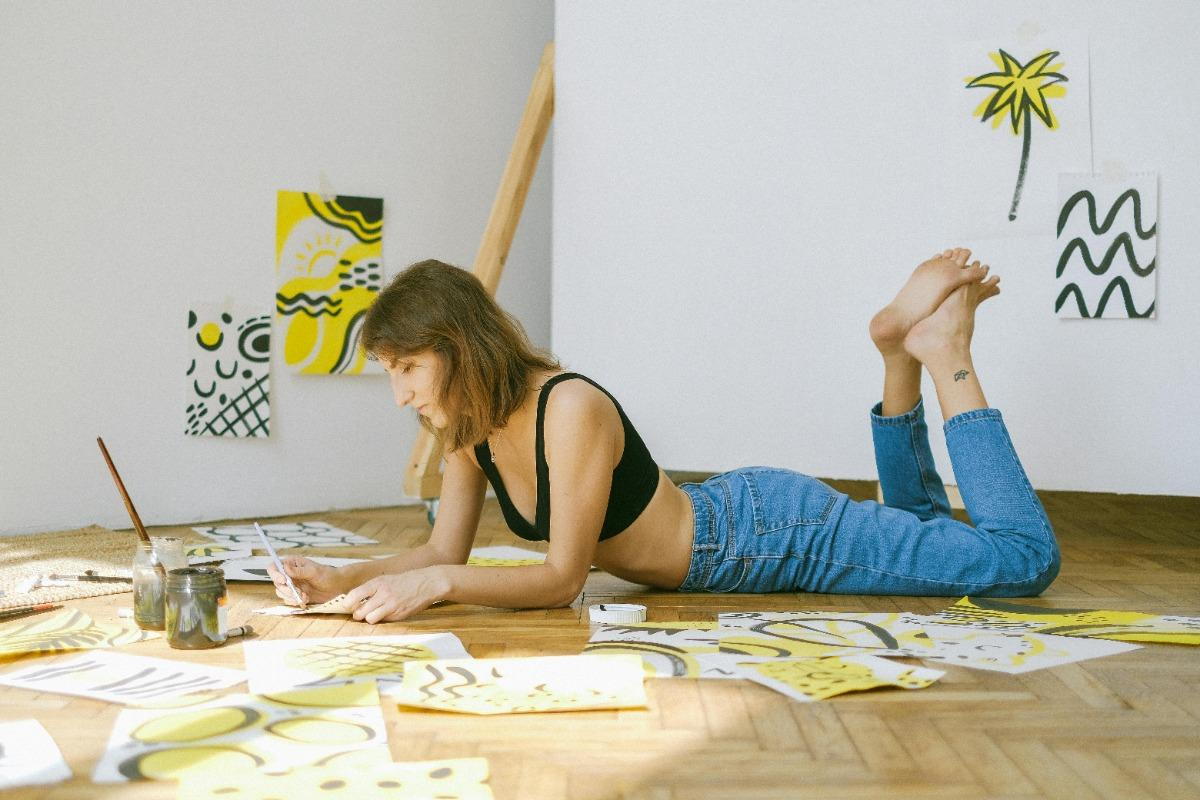
Art therapy is a form of psychotherapy that uses creative processes, including painting, drawing, sculpting, coloring, performing, and more to help individuals express themselves, explore their emotions, and improve mental well-being. This therapeutic approach integrates art and psychology, offering a non-verbal medium for people to communicate complex feelings and experiences. According to the American Art Therapy Association, art therapy is an effective treatment for individuals experiencing trauma, depression, anxiety, and other mental health issues.
I have a particular passion for art therapy as I earned a master’s degree from Salve Regina University in Newport, Rhode Island in holistic mental health counseling with a focus in art expressive therapy. That led me to my master’s thesis in drama therapy and psychodrama using art and narrative therapies. Afterwards, I went on to write two one-person shows that I performed on more than 500 stages across the U.S. Later in life, I realized that my work in my master’s program in expressive art therapies and these performances were really a journey of my own healing work of self-exploration and self-growth. I went on my own journey of using art as a healing modality.
There are many examples. In an interview with The Guardian, actor and comedian Jim Carrey spoke about how painting became a form of therapy for him and how art helped him cope with depression. Singer and actress Miley Cyrus has shared how she uses art, particularly painting, drawing, and music, to manage stress and anxiety. Actor Anthony Hopkins has been open about his use of painting as a therapeutic activity. Hopkins has described how creating art allows him to express emotions and find peace, especially during challenging times.
Whether you live in Massachusetts or Rhode Island, The Psyched Group has therapists who offer art therapy, either in virtual or in-person sessions.
Understanding art therapy
Art therapy involves the use of various art forms as therapeutic tools. Guided by an art therapist, individuals can understand the nonverbal messages often found in these art forms, which can lead to a better understanding of their feelings and behavior. The goal is not to produce professional-quality artwork but to use the creative process as a means of expression and exploration. This type of therapy can be particularly beneficial for individuals who find it difficult to articulate their thoughts and emotions verbally.
A study published in the Journal of Clinical Psychology said that art therapy significantly reduced symptoms of distress and improved quality of life in participants. Additionally, a survey conducted by the American Art Therapy Association in 2021 revealed that 72% of art therapists reported seeing an increase in demand for their services during the COVID pandemic, highlighting the growing recognition of art therapy's benefits.
Benefits of art therapy
Art therapy offers a number of benefits, including:
Emotional Expression: It provides a safe space for individuals to express their feelings, which can be particularly helpful for those who have difficulty with verbal communication.
Stress Relief: Engaging in creative activities can reduce stress and promote relaxation by providing a healthy outlet for self-expression, allowing individuals to process and release negative emotions in a constructive manner. Creative activities can also induce a state of flow, where one becomes fully absorbed and focused.
Self-Discovery: Art therapy encourages self-reflection and can help individuals gain insights into their thoughts and behaviors by encouraging individuals to explore and express their innermost thoughts and feelings, often revealing subconscious insights and emotions that may not surface through traditional verbal communication.
Enhanced Communication: For those with communication difficulties, art therapy can be an alternative way to convey experiences and emotions. It may allow them to share their thoughts and feelings more openly, potentially fostering better understanding and connection.
Improved Mental Health: Art therapy can reduce symptoms of anxiety, depression, and Post Traumatic Stress Disorder (PTSD) by providing a safe and constructive outlet for expressing and processing traumatic and distressing emotions, which helps to alleviate emotional tension and promote mental healing. The structured creative process during art therapy sessions can enhance coping mechanisms and resilience, leading to a decrease in overall symptoms.
What’s an art therapy session like?
A typical art therapy session involves a trained art therapist who guides the individual through various creative activities, though art therapists can work with individuals, couples, and groups in a variety of settings. For someone experiencing anxiety, for example, here’s what a session might look like:
Introduction: The therapist is likely to begin with a brief discussion about the individual's current feelings and experiences. This might include some relaxation exercises to help the person feel comfortable and focused.
Art Activity: The individual is invited to create art that represents their feelings. For instance, they might be asked to draw or paint an image that depicts their anxiety. For an in-person session, the therapist might provide various materials such as paints, pencils, or clay. If the session is virtual, you’ll want to have supplies available.
Reflection and Discussion: After the art-making process, the therapist and the individual discuss the artwork. The therapist might ask questions to help the person explore the symbolism and emotions behind their creation.
The session might end with a grounding exercise or a discussion about how the individual felt during the session and any insights gained.
Art therapy sessions are uniquely tailored to each individual's needs, allowing therapists to design activities that align with personal goals, preferences, and emotional states. This personalized approach ensures that each session addresses specific therapeutic objectives, making the experience highly relevant and effective for each person.
Book an art therapy session
Whether you live in Rhode Island or Massachusetts, The Psyched Group has therapists who are experts in art therapy and can help you navigate your challenges through creative expression. Our trained professionals are dedicated to providing personalized care tailored to your needs.
If you are interested in exploring art therapy, consider reaching out to The Psyched Group for guidance and support.
For more information on art therapy and to find a qualified therapist in Rhode Island or Massachusetts, go here.
